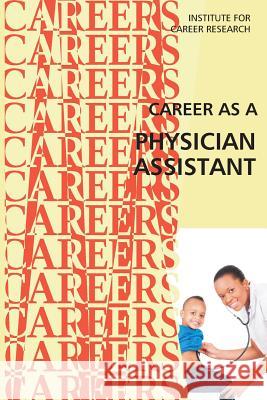Career as a Physician Assistant » książka
Career as a Physician Assistant
ISBN-13: 9781511500593 / Angielski / Miękka / 2015 / 28 str.
PHYSICIAN ASSISTANT HAS BEEN identified as one of the very best jobs in America. The reasons for the career's appeal are striking: Jobs available everywhere Relatively fast entry - the post-graduate education averages just 27 months Excellent pay starting at around $90,000 with the potential to go much higher Flexibility to practice in different specialty areas without additional education Job growth that is nearly twice as fast as most other occupations Exceptional work/life balance Physician assistants, commonly called PAs, practice medicine under the supervision of a physician. Their training is very similar to that of physicians, compressed into a shorter period of time. Although they cannot practice independently, they often act as stand-alone providers, performing many of the same duties traditionally reserved for doctors. The actual amount of autonomy they have can vary, but generally they provide diagnostic, preventive and therapeutic services. Physician assistants are especially important in primary care, where there is an acute shortage of licensed physicians. On any day, a physician assistant in primary care might provide physicals, order and interpret lab tests or x-rays, assist in surgery, diagnose and treat illness, set broken bones, suture lacerations, treat minor burns, prescribe and carry out therapy, and write out prescriptions. Physician assistant training programs are a fast track into the medical field. Most start with a bachelor's degree, but some programs will admit students with only two years of college courses, granting a bachelor's degree as part of the training. While it is advantageous to have a college major in a subject related to healthcare, especially science, it is not required. In fact, a candidate can enter a PA program with a background in any major. The intensive training programs focus entirely on the medical, scientific, and clinical skills needed to become a primary healthcare provider. Graduates are fully qualified to take certification exams and go to work. No residency is required. As the healthcare industry continues to struggle with a doctor shortage and a growing patient population, the physician assistant will become increasingly needed. PAs are enjoying progressively greater roles in front-line care as states continually expand the range of services PAs are allowed to perform. It all adds up to fantastic job growth with demand far exceeding the supply of new PAs."
Zawartość książki może nie spełniać oczekiwań – reklamacje nie obejmują treści, która mogła nie być redakcyjnie ani merytorycznie opracowana.











